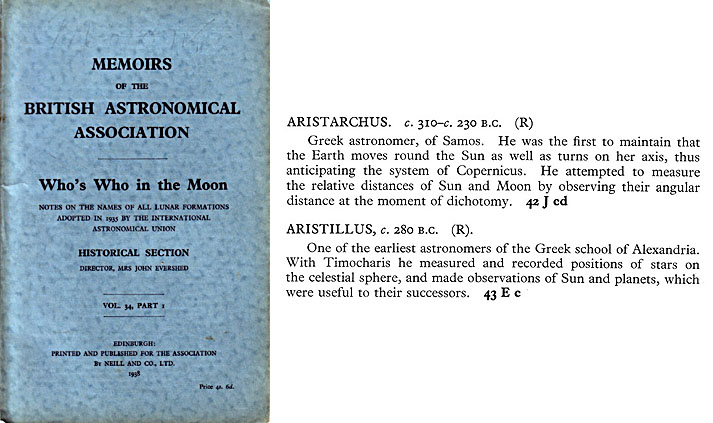Difference between revisions of "October 17, 2015"
(Created page with "__NOTOC__ =Lunar Names= Originally published October 16, 2004 <!-- Start of content --> <table width="85%" border="0" align="center" cellpadding="6" cellspacing="2"> <tr> </t...") |
(No difference)
|
Latest revision as of 00:04, 17 October 2015
Lunar Names
Originally published October 16, 2004
Image Credit: Chuck Wood |
|
Lunar Names Lunar names have caused a vast amount of confusion every since the second Moon map was made by Hevelius, who didn't accept the nomenclature devised by the first mapper and namer, Van Langren. By 1935 the International Astronomical Union had agreed on a set of nomenclature that has been the basis for everything since. Taking advantage of this unaccustomed nomenclatural stability, in 1938 the Historical Section of the British Astronomical Association published a classic reference, Who's Who on the Moon. It contains a brief biographical description of each person honored with a lunar name. Little tidbits of 0bscure information are found in the 130 page booklet - for example what is the explanation of this sentence in the entry for Wargentin: "... in 1761, he saw another [lunar eclipse] of special interest, the Moon being totally invisible for half an hour in a totally clear sky." Was it simply a very dark eclipse or something more bizzare? In 1995 two college students published an updated version of Who's Who on the Moon, but I have not seen it. Is there another update in the works? Technical Details: Related Links: Yesterday's LPOD: A Lumpy Mare Tomorrow's LPOD: Rounding the Ellipses |
|
Author & Editor: |
COMMENTS?
Register, Log in, and join in the comments.




